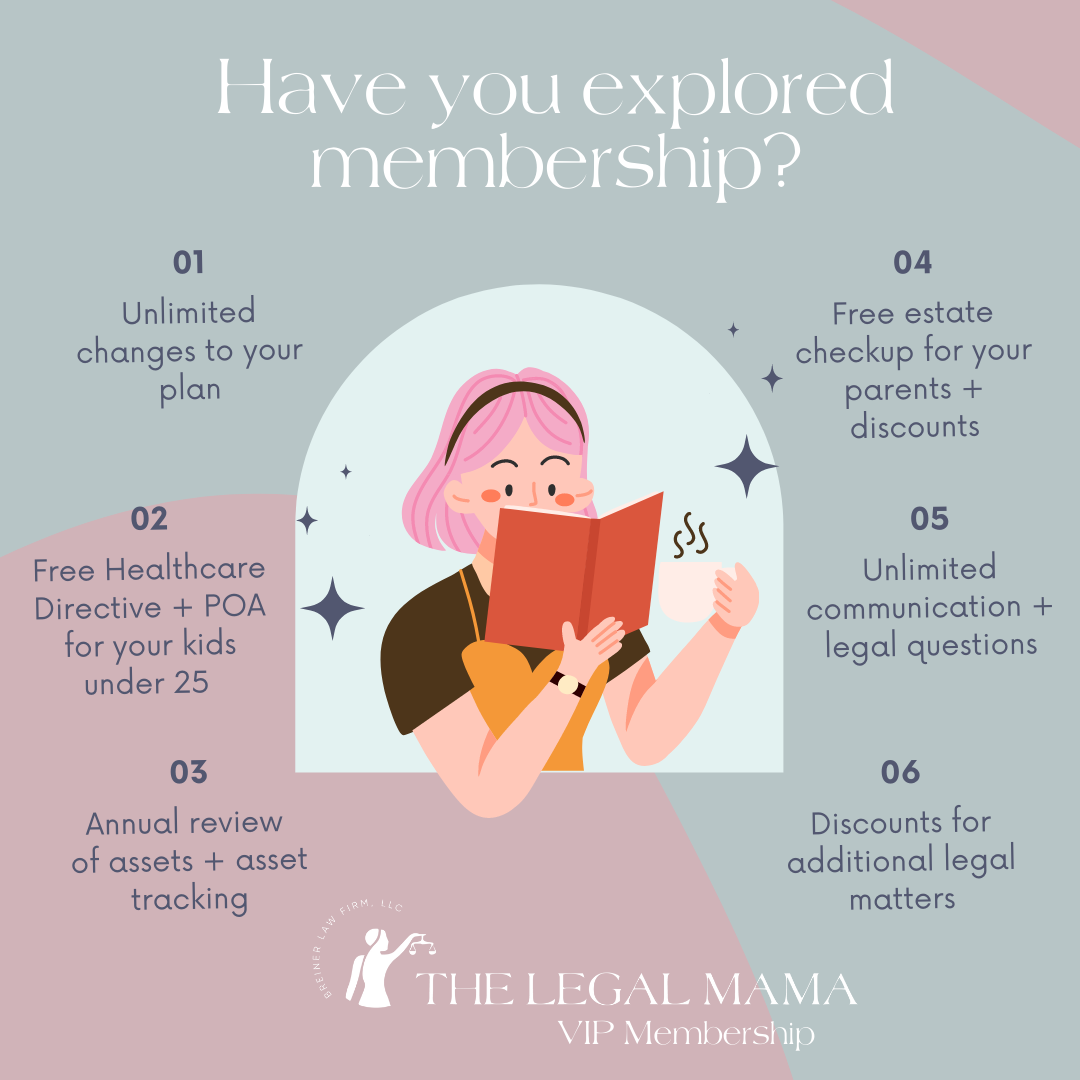3 Estate Planning Issues For LGBTQ Couples—Part 2
Jan 26, 2022
3 Estate Planning Issues For LGBTQ Couples—Part 2
Whether you are married, in a committed partnership, or buying homes with chosen family (platonic or otherwise), estate planning is about much more than planning for death—it's about planning for life. It's the way to ensure your beloved will be protected and provided for in the event of your death or incapacity. As members of the LGBTQIA+ community, it's more important for us and our families to get a handle on our estates than anyone.
Although marriage equality (for the LGBTQIA+ community) is legally recognized in all 50 states, long-held prejudice at both the political and family level continues to create complications for both married and unmarried queer families. For example, suppose you have family members who are opposed to your marriage/chosen family living situations. In that case, your estate plan may be more likely to be disputed or even sabotaged by unsupportive relatives. This could mean that family members are more likely to contest your wishes, or it might result in custody battles over children in the event of the parent's/caregiver's death.
Unsupportive family members may even try to block the ability of your partner(s) to make medical decisions on your behalf should you become incapacitated by accident or illness. Even worse, your family members could try to kick your partner(s) out of a shared home, if you are in an accident or fall ill, or they may even block your partner(s) from seeing you if you require hospitalization.
Additionally, if you and your partner(s) are unmarried, they would have no rights or protections should you become incapacitated or die without any planning in place, which leaves them vulnerable to several potentially dire risks.
Given these issues, if you are in a Queer family structure (of any kind), you should be aware of several unique considerations regarding your estate plan. Sarah and the Legal Mama team are uniquely able to address your specific circumstances - but, here are three of the most pressing concerns to keep in mind.
As we discussed, last week in part one, such discrimination can create unique estate planning challenges, and regardless of your marriage status, if you are an LGTBQ adult in a committed partnership, you should be aware of several issues that can affect your planning strategies. Specifically, we discussed how relying on a will alone may not provide sufficient protection for your partner/spouse/chosen family, and we explained why incapacity planning is particularly crucial if you want your partner/spouse to have a say in your medical treatment and the ability to access and manage your assets in the event you are hit with a debilitating illness or injury.
Here we’ll address the final issue you should be aware of when creating your estate plan—securing parental rights for the non-biological parent of minor children.
- Estate Planning Offers Alternative to Adoption
Although married Queer couples now enjoy nearly all of the same rights as straight and cisgender couples, there is one key right that’s still up in the air—the automatic right to be legal parents. While parental rights are of course automatically bestowed upon the biological parent(s) of a child, the non-biological spouse/parent still faces a number of challenges when it comes to obtaining full parental rights.
Since the Supreme Court has yet to rule on the specific issue of the parental rights of the non-biological parent in a Queer marriage, there is a tangled, often contradictory, web of state laws governing such rights. If you are a married Queer couple, for example, some states consider the non-biological partner a legal parent based solely on your marriage, while other states do not.
Given the conflicting nature of state laws, many Queer couples have turned to second-parent adoption to gain parental rights for the non-biological parent, since the Supreme Court has ruled that the adoptive parental rights granted in one state must be respected in all states. However, it can be extremely difficult for Queer couples to adopt. In fact, 11 states currently permit state-licensed adoption agencies to refuse to grant an adoption, if doing so violates the agency’s religious beliefs. In other states, the law specifically forbids such discrimination, but given the Supreme Court’s ruling last week in Fulton v. City of Philadelphia, even those laws are susceptible to legal challenge.
In that case, the city canceled a contract with Catholic Social Services (CSS), a taxpayer-funded, faith-based foster care and adoption agency, after it refused child placement with LGBTQ families in violation of a city law prohibiting anti-LGBTQ discrimination. CSS sued the city, arguing that requiring it to follow the nondiscrimination policy violated its free exercise of religion since working with LGBTQIA+ couples would go against its religious opposition to homosexuality.
In a unanimous judgment, the Supreme Court ruled in favor of CSS and found Philadelphia’s contract with CSS to be unenforceable. However, the ruling was narrowly focused on specific contractual language, and it does not create a broad free-exercise exemption from nondiscrimination laws, as many in the LGBTQIA+ community feared.
That said, the Fulton case and others like it that are sure to follow, demonstrate that when it comes to LGBTQIA+ couples seeking parental rights, second-parent adoption is not a panacea. Fortunately, Queer couples do have an alternative to adoption—estate planning. Indeed, using a variety of estate planning strategies, as your Personal Family Lawyer®, we can provide a non-biological, LGBTQIA+ parent with nearly all parental rights, even without formal adoption.
Starting with our Guardian Guide, LGBTQ couples can name the non-biological parent as the child’s legal guardian, both for the short-term and the long-term, while confidentially excluding anyone the biological parent thinks may challenge their wishes. In this way, if the biological parent becomes incapacitated or dies, their wishes are clearly stated, so the court can do what the parent would’ve wanted and keep the child in the non-biological parent’s care.
Beyond that, there are several other estate planning vehicles—living trusts, power of attorney, and health care directives—we can use to grant the non-biological parent additional rights. We can also create “co-parenting agreements,” which are legal agreements that stipulate exactly how the child will be raised, what responsibility each partner has toward the child, and what kind of rights would exist if the couple splits or gets divorced.
Experience You Can Rely On
In light of these issues, it’s vital for LGBTQ+ couples, especially those with children, to always work with experienced estate planning lawyers, and avoid using generic online documents at all costs. As your Personal Family Lawyer®, we have the experience of creating plans specifically designed to prevent your plan from being challenged in court by family members who disagree with your relationship.
With the proper planning, we can ensure that no matter what happens to you, your partner(s) and family will be protected and provided for in the exact manner you wish, rather than being stuck in a financial and legal nightmare. What’s more, our specialized planning services can help ensure that non-biological parents in LBGTQIA+ partnerships have as many parental rights as possible, without resorting to second-parent adoption. Contact The Legal Mama team today to get started with a Family Wealth Planning Session!
***Please note that this article was edited by a member of the LGBTQIA+ community - language such as "queer" to describe the umbrella of identities is used in reclamation and should not be used by people not belonging to the community.
Click the photo to learn about my unique planning process, which starts with a Family Wealth Planning Session:
Many of the issues in today's article are addressed throughout membership with yearly family meetings. Once you finish your planning, we can help you keep your plan up-to-date and keep your family up to date as well. Membership also offers loads of perks like unlimited communication on your legal needs and more. Just one more way Legal Mama goes above and beyond as your Personal Family Lawyer for Life!


Feeling overwhelmed by the Estate Planning Process? Want an Estate Planning Life Hack? Sign up for "Sarah's Plan"! Our MOST comprehensive plan at our most reasonable price in a FRACTION of the time. All you have to do is fill out a handful of questions online, pay our discounted fee, and know that your planning is completely DONE! Want to discuss this option in 15 minutes or less? Schedule a free consultation call and we'll have your planning done in no time!
Next ONLINE Webinar:
This article is a service of Sarah Breiner, Personal Family Lawyer®. We don’t just draft documents; we ensure you make informed and empowered decisions about life and death, for yourself and the people you love. That's why we offer a Family Wealth Planning Session,™ during which you will get more financially organized than you’ve ever been before, and make all the best choices for the people you love. What is a Personal Family Lawyer®? A lawyer who develops trusting relationships with families for life.
You can begin by contacting Sarah today to schedule a Family Wealth Planning Session.
Lorem ipsum dolor sit amet, consectetur adipiscing elit. Cras sed sapien quam. Sed dapibus est id enim facilisis, at posuere turpis adipiscing. Quisque sit amet dui dui.
Stay connected with news and updates!
Join our mailing list to receive the latest news and updates from our team.
Don't worry, your information will not be shared.
We hate SPAM. We will never sell your information, for any reason.






